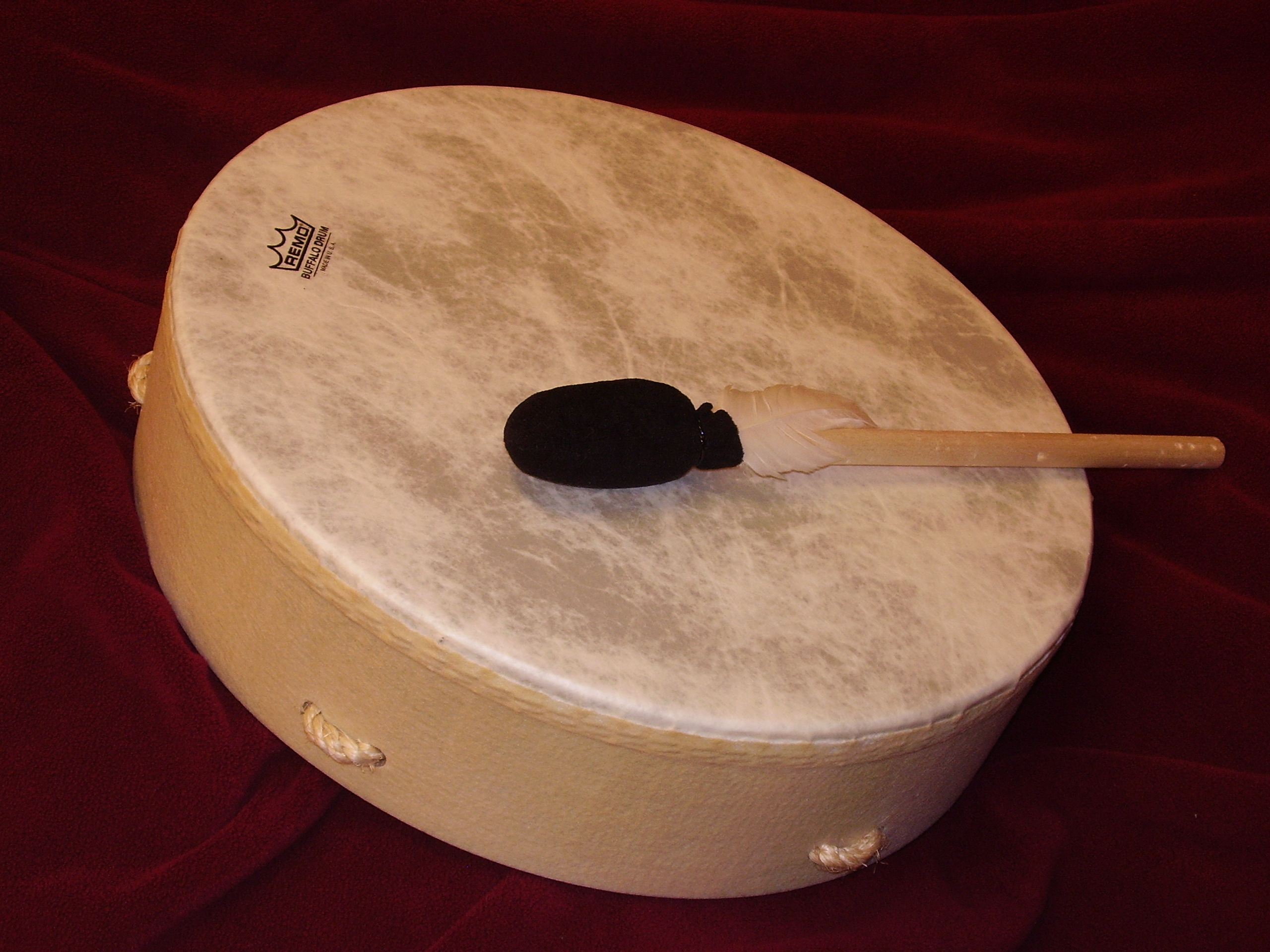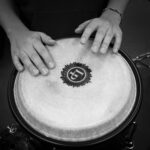Get with the beat: drumming for well-being
Drumming is cultural, spiritual, playful, and healing. What an extraordinary statement from a child of the 1970’s. For me, the word “drumming’ used to evoke memories of rock and roll drum solos; the outcome of which was usually ringing ears and angry parents. Now I recognize drumming as a modality used in complementary and alternative care.
My first introduction to drumming within the healthcare arena was while attending a certificate program in integrative nursing. A sound therapist brought hand drums from many cultures and led us nurses in a drumming circle. There were African drums, Asian drums, Native American drums, percussion instruments I remember from grade school, and even a xylophone. Each of us chose an instrument, and spontaneously, we played. We took off together in an explosion of sound! When we settled down again, our leader guided us to listen as we played, encouraging us to coordinate our rhythms with each other, encouraging us to notice and express our emotions. The evening progressed with some loud jam sessions and a profound and quiet heart beat. A few attendees ‘drummed’ with their feet, stomping or dancing along with the rhythms.
 Since that time, I’ve attended drumming circles at a national nursing conference, at a meeting of nursing instructors, and at caregiver retreats. I have met nurses who lead drumming circles with cognitively impaired children, cancer patients, and in a long term care facility as a recreational event to provide sensory stimulation.
Since that time, I’ve attended drumming circles at a national nursing conference, at a meeting of nursing instructors, and at caregiver retreats. I have met nurses who lead drumming circles with cognitively impaired children, cancer patients, and in a long term care facility as a recreational event to provide sensory stimulation.
Barry Bittman, MD, has published several research studies about drumming circles used in sound healing. In one study, Bittman found that drumming circle attendees experienced a boost to their immune system, helping the body to cope with cancer, AIDS, and other viruses. (Bittman, 2001). In another study, Dr. Bittman found that participation in a six week group drumming protocol significantly reduced burnout and improved mood in nursing students (Bittman, 2004.) Dr. Bittman also found that group drumming reduced burnout and improved the mood of healthcare workers in long term care (Bittman, et al, 2003). Dr. Bittman is the CEO of the Mind-Body Wellness Center in Meadville, PA.
Most drumming circles require no experience, and often drums are available to borrow (although some people like to bring their own drum.) You can drum your own rhythm, or follow the rhythm of someone else in the group. Listening is a good skill to bring. Listen to yourself, to see what you want to express. Listen to each of the players in the circle, to blend your rhythms to their beat. Look forward to being fully present. While drumming, it is easy to put aside all of the day’s concerns, lists of things to do, and distractions. Thinking and drumming at the same time is tough, providing a welcome respite from the constant stream of thoughts we usually experience. Drumming circles often result in feelings of connection with each other, creating a sense of community.
Another style of drumming is called “Heart’s Beat.” Hearts is an acronym for Healing Energy Amplified Through Reiki’s Timeless Song. Rather than a group event, Hearts Beat is a sound healing modality, used during a Reiki session. Using simple frame drums, a monotonous rhythm is played by the practitioner. Not just any rhythm, however; the rhythm is a steady 180 beats a minute. This is the average fetal heart rate, the rhythm of an unborn infant’s heart. It is soothing, calming, and restful. During a Heart’s Beat session, the receiver may stand, sit, or lie down while the practitioner drums the fetal heart rate, moving the drum over and around the recipient. 
No adverse effects have been reported, but some authors suggest that people might experience anxiety during drumming or any kind of sound healing if they have a history of trauma or abuse. If that is the case, it would be best to consult a qualified healthcare professional before participating in a sound healing experience. (Natural Standard, accessed 2/27/09). Drumming certainly should be considered something to try in addition to conventional medicine, never instead of!
You can listen to recordings of drums, you can drum alone in the privacy of your home, you can drum outside in nature, you can experience a Heart’s Beat drumming appointment, and you can join drumming circles. Enjoy!
Published previously in the author’s column in the Port Planet, Newburyport, Mass, 2009.



